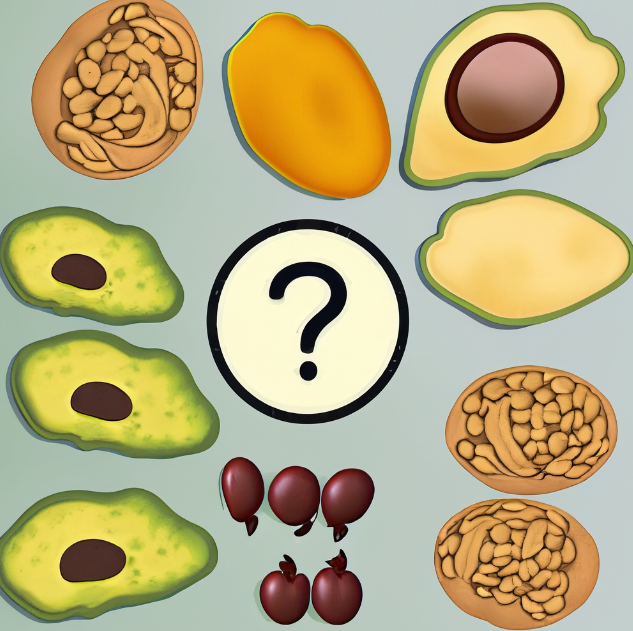In the field of nutrition, the term “fat” often has negative connotations. However, not all fats are created equal. Some fats are not only beneficial, but essential for our health. These include polyunsaturated fats (PUFA) and monounsaturated fats (MUFA). These are two healthy fats that play important roles in our bodies. Understanding the differences between these fats, their benefits, and their sources can guide you to healthier dietary choices.
understand fat
On a ketogenic diet, fat makes up a significant portion of total caloric intake, often over 70%. This includes saturated fats found in butter and red meat. It was previously thought that saturated fats increased cholesterol levels and the risk of heart disease. However, more recent research has shown that this relationship is more complex than previously thought.
There has been no conclusive evidence that saturated fat intake increases cardiovascular risk, especially in those following a well-formulated low-carbohydrate, high-fat ketogenic diet. Studies have demonstrated that the keto diet can improve heart disease risk factors such as blood pressure and triglycerides.
Although butter and red meat contain saturated fat, they also provide essential nutrients when sourced from high-quality producers, such as grass-fed beef. It is recommended that you limit your intake of processed meat. However, including moderate amounts of grass-fed butter and red meat as part of a ketogenic diet has not been shown to increase heart disease risk factors compared to a standard high-carbohydrate diet. Current evidence shows that saturated fats such as butter and red meat can be included in a healthy ketogenic diet.
What are unsaturated fats?
Unsaturated fats have at least one double bond within the fatty acid chain. This double bond changes the structure and properties of the fat, making it healthier than saturated fats. Foods such as oils, nuts, and fish contain unsaturated fats that are liquid at room temperature. There are two main forms of unsaturated fats: monounsaturated fats (MUFA) and polyunsaturated fats (PUFA). Both types offer health benefits, but differ in their chemical structure and impact on health.
Monounsaturated fats (MUFA)
Monounsaturated fats have a molecular structure that contains only one carbon-carbon double bond. This structure allows you to maintain good (HDL) cholesterol levels while lowering bad (LDL) cholesterol levels, contributing to heart health and overall cellular health.
Monounsaturated fats are abundant in a variety of foods. Fats that are beneficial to our health are found in edible oils such as olive oil and avocado. Other sources include avocados, olives, and nuts such as peanuts and cashews. Some spreads labeled as “high in oleic acid” also contain monounsaturated fats. By adding these foods to your daily diet, you can experience the many benefits of consuming monounsaturated fats.
Examples of monounsaturated fats:
Avocado: Avocados are an excellent source of monounsaturated fats and are a staple on many keto diets. Olive oil: Olive oil is high in monounsaturated fats and is often used in dishes on the keto diet and as a dressing for salads. Almonds and Almond Butter: Almonds are high in monounsaturated fats, making almond butter a keto-friendly spread. Macadamia nuts: Macadamia nuts are one of the nuts with the highest amount of monounsaturated fat and lowest carbohydrates, making them perfect for the keto diet. Peanuts and peanut butter: Although technically a legume, peanuts are rich in monounsaturated fats and can be included in a keto diet in moderation. Olives: It is beneficial to include olives in your keto diet as they are rich in monounsaturated fats like olive oil. Rapeseed oil: Although we don’t recommend rapeseed oil (because it’s highly processed), rapeseed oil is high in monounsaturated fats and is known to be used in keto diets (and is known for its use in keto diets). Sunflower oil: Similar to rapeseed oil, it is highly processed and used on dirty keto. We do not recommend consuming it as it is highly processed.
Polyunsaturated fats (PUFA)
Polyunsaturated fats, on the other hand, have multiple double bonds in their carbon structure. Like monounsaturated fats, it also helps lower unhealthy LDL cholesterol. However, polyunsaturated fats are essential for the body’s functioning and play a role in building cell membranes and blood clotting. Unlike monounsaturated fats, your body cannot produce polyunsaturated fats, so you must get them from food.
There are two main types of polyunsaturated fats: omega-3 fatty acids and omega-6 fatty acids. Your body needs both of these for brain function and cell growth. Foods high in polyunsaturated fats include sunflower and pumpkin seeds, cooking oils such as corn and safflower, and nuts such as pine nuts.

Examples of polyunsaturated fats:
Fatty fish: Salmon, mackerel, sardines, and trout are rich in omega-3 polyunsaturated fats. Flaxseeds and Chia Seeds: These seeds are rich in omega-3 fats and are easy to add to a variety of dishes. Walnuts: Walnuts are a good source of omega-3 fats. Hemp seeds: Rich in both omega-3 and omega-6 fats. Avocado: Avocados are primarily monounsaturated fats, but they also contain some polyunsaturated fats. Olives and olive oil: Like avocados, these are primarily monounsaturated fats, but they do contain some polyunsaturated fats. Almonds and Almond Oil: Almonds are a good source of polyunsaturated fats, and so is almond oil.
Polyunsaturated fats vs. monounsaturated fats
Polyunsaturated fats and monounsaturated fats are beneficial to our health, but the difference lies in their molecular structure and their effects on the body. Monounsaturated fats have one double bond, while polyunsaturated fats have two to six double bonds. This structural difference affects how these fats function in our bodies.
Both fats help reduce LDL cholesterol, commonly known as “bad cholesterol.” This prevents it from building up in your arteries and increasing your risk of heart disease. However, they differ in their sources and specific health benefits. For example, monounsaturated fats found in foods like avocado and olive oil are known to maintain overall cellular health. Polyunsaturated fats, on the other hand, are essential for building cell membranes and blood clotting. They are also important for brain function and cell growth.
Omega-3 and Omega-6 fatty acids
Omega-3 and omega-6 fatty acids are polyunsaturated fats that the body needs for brain function and cell growth. However, these fats cannot be produced by the body and must be obtained from the diet.
There has been extensive research into the heart health benefits of omega-3 fatty acids. Research shows they can lower triglyceride levels and slightly increase HDL (good cholesterol) levels. Foods high in omega-3 fats include fatty fish such as salmon and mackerel, flaxseed, chia seeds, walnuts, and certain types of algae.
Although essential, omega-6 fatty acids are typically consumed in excess in the Western diet. These are found in many types of vegetable oils and processed foods. Although necessary for our bodies, an imbalance in the intake of omega-6 and omega-3 can lead to inflammation and related diseases.
Saturated and unsaturated fats on the keto diet
Saturated fats such as butter and red meat have long been thought to universally increase cholesterol and heart disease risk. However, current research shows that on a fat-rich ketogenic diet, saturated fat intake does not appear to pose the same risks as seen on high-carbohydrate diets.
Elevated protective HDL and lowered triglycerides are usually accompanied by increased LDL cholesterol. Many studies have shown that the keto diet improves heart disease risk factors such as blood pressure.
In contrast, unsaturated fats such as olive oil, avocado, nuts, and seeds have established heart health benefits. Monounsaturated and polyunsaturated fats help lower LDL cholesterol and raise HDL cholesterol.
While it may not be necessary to strictly limit saturated fats on a keto diet, emphasizing unsaturated fats from plants and fish can have cardiovascular benefits. A combination of saturated and unsaturated fats from animal sources is best for your health.
Moderate intake of either macronutrient is recommended. However, including saturated and unsaturated fats as part of a well-planned ketogenic diet can have significant benefits when replacing refined carbohydrates.
The role of unsaturated fats in a healthy diet
It cannot be overstated how important unsaturated fats are to a healthy diet. These polyunsaturated and monounsaturated fats offer many health benefits, from lowering harmful cholesterol levels to reducing the risk of heart disease. It also provides essential fats that our bodies need but cannot produce on their own.
However, it’s not just about consuming unsaturated fats. It’s about balancing your fat intake. Although replacing saturated fats with unsaturated fats is beneficial, it is equally important to balance omega-3 and omega-6 fatty acids, both of which are polyunsaturated fats. It is important to avoid consuming too much omega-6 fatty acids in your diet, as this can lead to inflammation and related health problems. Therefore, incorporating omega-3-rich foods is important for maintaining overall health.
The British Heart Foundation recommends that most of the fat you consume is unsaturated fat, and advises that 25-35% of your daily calories come from these fats. Foods that contain these healthy fats include fish, nuts, seeds, and vegetable oils.
conclusion
To make informed dietary choices, it’s important to understand the difference between polyunsaturated and monounsaturated fats. Both fats offer unique health benefits and play important roles in our bodies. By incorporating these healthy fats into your daily diet, you can lower harmful cholesterol levels, minimize your chances of heart disease, and optimize your body’s performance.
Dietary fats may seem complicated, but remember a simple lesson: not all fats are created equal. So the next time you plan your meal, consider the type of fat you’re consuming. Choose unsaturated fats and try to balance your intake of omega-3 and omega-6 fatty acids. Your body and especially your mind will thank you.





